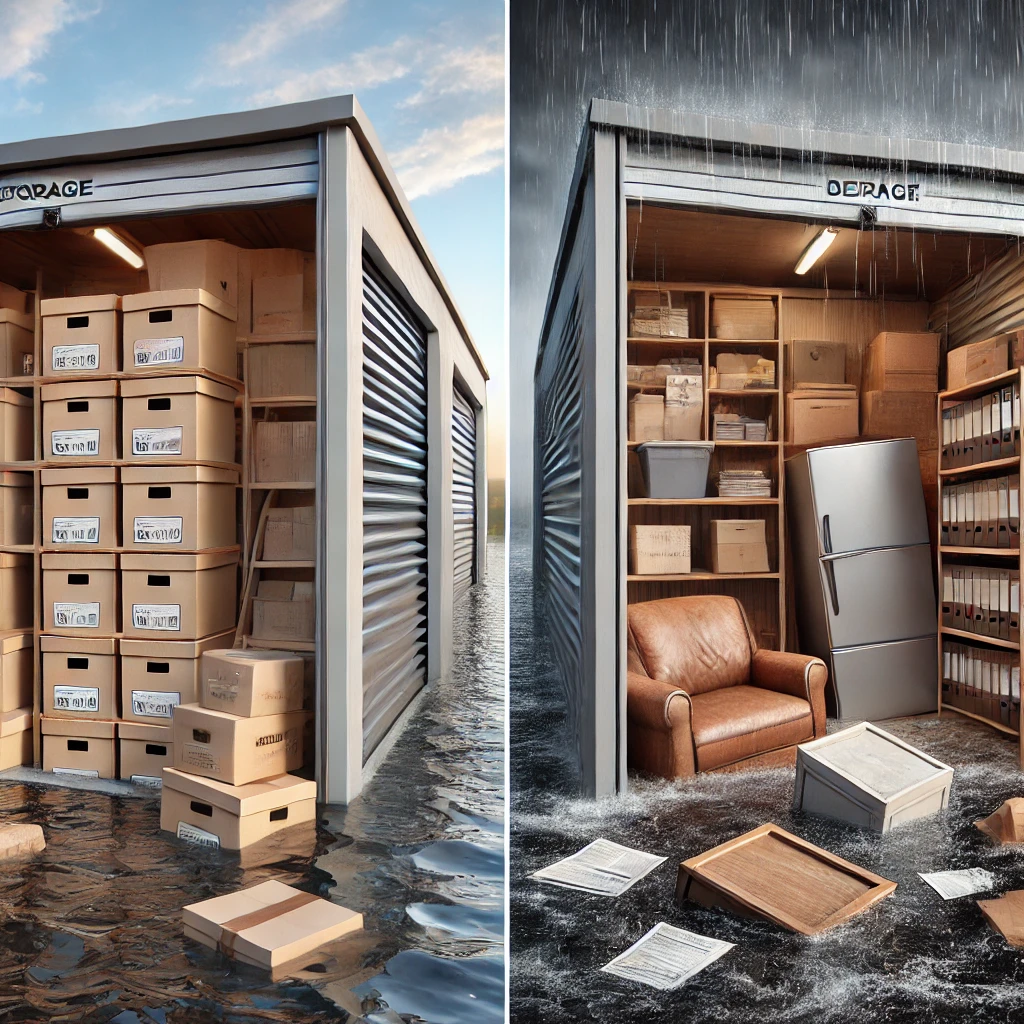What You Should and Should Not Put in a Storage Unit During a Flood
—
October 6th, 2024

When it comes to safeguarding your belongings, especially in areas prone to floods, it's important to know what you should and should not store in a storage unit during a flood. Whether you're located in a flood-prone region or facing a potential natural disaster, understanding how to protect your items can save you significant time, money, and stress in the long run. In this guide, we’ll break down the do's and don’ts of what to store in a unit when a flood might be on the horizon.
What You Should Put in a Storage Unit During a Flood
- Waterproof Containers One of the safest options for storing belongings in flood-prone areas is waterproof containers. These tightly sealed, durable plastic bins can protect items from water damage. Use them to store important papers, clothing, and smaller valuables. Make sure to label the containers clearly for easy identification.
- Metal Furniture and Equipment Items made of metal such as aluminum or stainless steel are more resistant to water damage. If you need to store heavy-duty equipment, metal chairs, or desks, these items will hold up better than wood or fabric-based items. However, ensure these items are stored off the floor to avoid potential rusting.
- Plastic or Resin-based Items Plastic bins, lawn chairs, and other resin-based products generally hold up well during floods. These materials are designed to withstand the elements, making them ideal for storage in a flood-prone unit.
- Elevated Items Even if an item isn't completely floodproof, elevating it off the floor can protect it from minor flooding. Use pallets or shelving to keep items raised, preventing water from seeping in during low-level flooding. Electronics, books, and personal items should be elevated whenever possible.
What You Should Not Put in a Storage Unit During a Flood
- Important Documents Paper documents such as birth certificates, legal papers, or tax records are highly vulnerable to water damage. Even if stored in waterproof containers, it’s safer to keep important documents in a secure, high and dry place like a safety deposit box or your home office—far from flood risk zones.
- Electronics Electronics such as computers, TVs, and stereo systems should never be placed in a storage unit during a flood. Even the smallest amount of water exposure can cause irreparable damage to these devices. If absolutely necessary, make sure to store them in waterproof containers and elevate them on shelves or pallets.
- Leather and Fabric Furniture Leather couches, fabric-covered chairs, and mattresses absorb water easily and are highly susceptible to mold and mildew in flood conditions. Once these items become waterlogged, they can be difficult or impossible to restore. Avoid storing any porous materials in a flood-prone unit.
- Perishable Food Items Storing food in a unit is always a bad idea, but it’s even worse in a flood-prone area. Not only will perishable food spoil when exposed to floodwaters, but it can also attract pests. Food items, especially perishables, should always be stored in your home or a location where they won't be subjected to weather conditions.
- Family Heirlooms and Valuables Priceless or sentimental items like photo albums, jewelry, and family heirlooms should never be stored in a unit, particularly when flooding is a risk. These irreplaceable items are best kept in a location with lower flood risk, such as a home safe.
Extra Tips for Storing in a Flood-Prone Area
- Insurance Coverage: If you're in a flood-prone area, it’s essential to ensure your storage insurance covers flood damage. Standard storage insurance policies may not cover natural disasters like floods, so check with your provider for any necessary upgrades.
- Invest in Climate-Controlled Units: Flood-prone areas often come with high humidity levels. A climate-controlled storage unit can help protect sensitive items such as electronics, furniture, and documents from both water damage and mold.
- Regularly Inspect Your Storage Unit: If you know that flooding is possible, make sure to regularly visit your storage unit to check for any potential leaks, cracks, or water damage. Early detection can prevent long-term losses.
Conclusion
Being prepared is key when it comes to storing items in a flood-prone area. Knowing what you should and should not put in a storage unit during a flood can make all the difference. Always prioritize waterproof, durable materials and elevate items whenever possible. Just as importantly, avoid storing irreplaceable valuables and perishable goods in these environments. With a little planning, you can keep your belongings safe and secure, even during a flood.Make sure to use the right keywords and follow best practices for storing your belongings safely in a flood-prone area to ensure your property is well-protected.By adhering to these guidelines, you’ll have peace of mind knowing that your valuables and essentials will survive a flood, minimizing potential losses.
